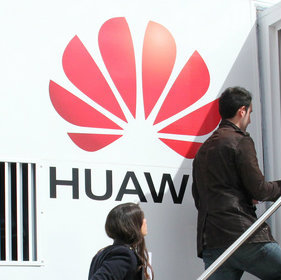Huawei Positions Itself for Age of Big Computing
The Chinese vendor says it is ready to sate incredible demand for artificially intelligent computing with its line-up of processors.

Huawei's assault on the AI world continues, with its announcement of a new high-end computing cluster and another $1.5 billion for its developer program.
In front of 20,000 customers at its annual Huawei Connect event in Shanghai, the company also set out its strategy for the computing and AI market, worth $2 trillion over the next five years, according to Gartner.
Deputy Chairman Ken Hu said the era of connected intelligence had arrived, creating "an incredible demand for computing."
Statistical computing, the basis of AI, would account for more than 80% of all the computing power worldwide.
"Statistical computing is essentially a form of brute force computing; it eats up computing resources," he said. "The industry doesn't have nearly enough computing power to meet demand."
Hu said Huawei was investing in multiple areas to meet the demand but had set boundaries on its role.
"To start with, we won't sell our processors directly. Broadly speaking, we will provide them to our customers in the form of cloud services, and to our partners in the form of components, prioritizing support for integrated solutions."
The Chinese vendor has built out a full line-up of processors -- from devices to AI -- and will release more for different scenarios, Hu said.
Huawei would open up hardware such as AI servers and accelerator cards to give customers the components they need to integrate AI into their products.
The company will invest further in architectures, such as its Da Vinci AI architecture, and in building out an open ecosystem, he said.
Its flagship announcement was a computer cluster, Atlas 9000, built on Huawei Ascend processors and aimed at high-end computer users such as research scientists.
The Atlas took only 59.8 seconds to train ResNet-50, the standard for measuring AI training performance, ten seconds faster than the previous record, Huawei said.
For all the latest news on artificial intelligence, check out our dedicated AI content channel here on Light Reading.
The company flagged up as customers heavy users such as the Square Kilometer Array astronomy project, which says it will annually archive 600 petabytes of data -- more than Facebook or Google today -- and Peng Cheng, a new government-backed lab in Shenzhen that would create China's first exascale AI computing system.
Hu said Huawei would tip another $1.5 billion into its developer program, with the aim of adding another 5 million to the current 1.4 million developers.
But while the company is investing heavily in AI technology, Hu conceded it had not established any ethical framework to guide its research work.
He said Huawei worked primarily as a technology enabler to AI but did not develop AI applications itself.
"There are a lot of debates about how the technology is used and there have been quite a few attempts to build standards," he said.
"While we don't develop applications, we are very willing to participate in discussions to prevent the abuse of AI technology."
— Robert Clark, contributing editor, special to Light Reading
Read more about:
AsiaAbout the Author(s)
You May Also Like




.jpg?width=300&auto=webp&quality=80&disable=upscale)







